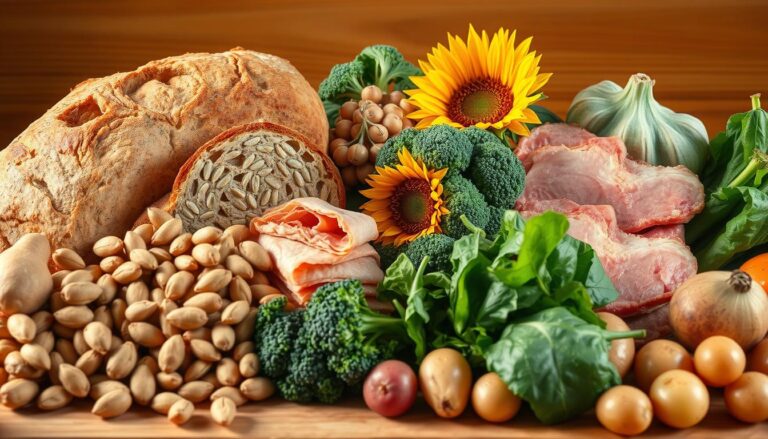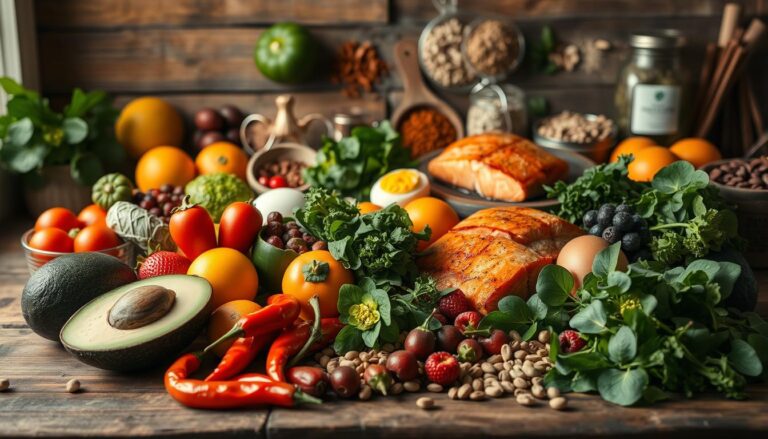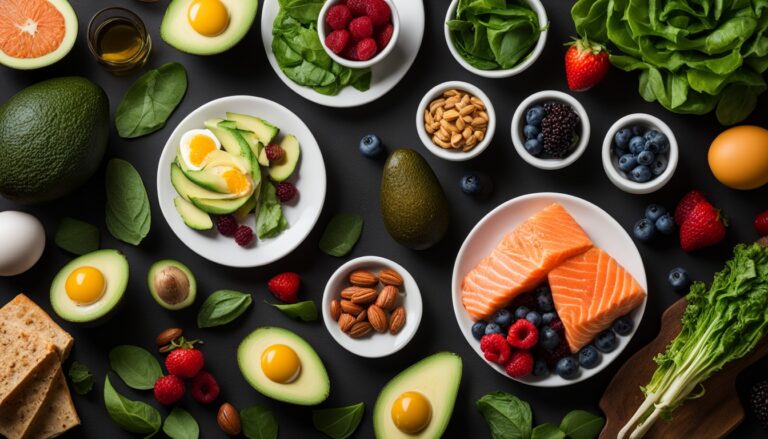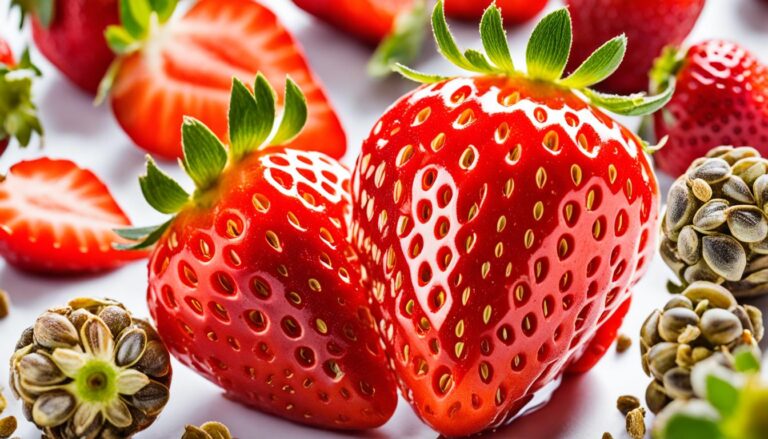Are you tired of dealing with vaginal infections, digestive issues, and hormonal imbalances? The secret to women’s health may lie in the gut – or more specifically, in the power of probiotics. But with so many options on the market, how do you choose the best probiotic strains for your unique needs? Prepare to unlock the code to optimal female wellness and say goodbye to those bothersome problems for good.
Key Takeaways
- Look for probiotic supplements containing well-researched strains like Lactobacillus rhamnosus GR-1, Lactobacillus reuteri RC-14, Lactobacillus crispatus, and Lactobacillus paracasei F-19 to support vaginal, urinary tract, and gut health.
- Ensure the supplement provides at least 1 billion colony-forming units (CFUs) per serving and is stored properly to maintain potency.
- Probiotic-rich foods like yogurt, kefir, sauerkraut, and miso are excellent options for supporting women’s health.
- Lactobacillus and bifidobacterium strains are particularly beneficial for women, helping to maintain a healthy vaginal and digestive microbiome.
- Probiotics may help alleviate common female issues like thrush, bacterial vaginosis, urinary tract infections, and digestive problems.
How Probiotics Can Benefit Women’s Health
Probiotics are the “good” bacteria in our bodies. They play a key role in supporting women’s health. From the vagina to the gut, these microorganisms work hard to keep things in balance. They help prevent many common issues that women face.
Vaginal Health
In the vagina, Lactobacillus bacteria keep the pH level right and the microbiome healthy. This is key to stopping bacterial vaginosis, yeast infections, and urinary tract infections (UTIs).

Digestive Health
Probiotics can help with digestive issues like bloating, constipation, and irritable bowel syndrome (IBS). They balance the gut microbiome. This can make these uncomfortable conditions better.
For women’s vaginal and digestive health, certain probiotic strains are best. Lactobacillus rhamnosus GR-1, Lactobacillus reuteri RC-14, and Lactobacillus crispatus are great choices. These female-specific probiotic strains meet the unique health needs of women.
“Probiotics can be a game-changer for women’s overall health and well-being. From maintaining a healthy vaginal microbiome to soothing digestive issues, these beneficial bacteria are a powerful ally in our quest for total body balance.”
Best Probiotic Strains for Vaginal Health
Keeping the vagina healthy is key for women’s wellbeing. Some probiotics are great for vaginal health and fighting infections. Lactobacillus rhamnosus GR-1 and Lactobacillus reuteri RC-14 are two strains that live in the vagina and keep it balanced.
These probiotics help balance the vagina, lower the chance of bacterial vaginosis, and stop bad microbes like Candida from growing. Lactobacillus crispatus also helps prevent urinary tract infections in women.
The vagina has over 50 types of microbes, and keeping them in balance is important. If the balance is off, it can lead to problems like bacterial vaginosis. This affects about 3.7 million Americans. Probiotics can help fix this balance and support vaginal health.
| Probiotic Strain | Benefits for Vaginal Health |
|---|---|
| Lactobacillus rhamnosus GR-1 | Colonizes the vagina, helps maintain a healthy vaginal microbiome, reduces risk of bacterial vaginosis |
| Lactobacillus reuteri RC-14 | Colonizes the vagina, helps maintain a healthy vaginal microbiome, inhibits growth of harmful microbes like Candida |
| Lactobacillus crispatus | Helps prevent recurrent urinary tract infections in women |
Adding these probiotics to your daily routine can greatly improve women’s vaginal health. It lowers the risk of infections and supports reproductive health.

What kind of probiotic is best for women?
For women’s health, not all probiotics are the same. The best ones have strains that help with vaginal and digestive health. Look for Lactobacillus rhamnosus GR-1, Lactobacillus reuteri RC-14, Lactobacillus crispatus, and Lactobacillus paracasei F-19. These strains support the vagina, prevent infections, and boost gut health.
A good women’s probiotic should have at least 1 billion CFUs per serving. It should also be stored right to keep its potency. Foods like yogurt, kefir, and fermented veggies are great natural sources of these beneficial bacteria.
| Probiotic Strain | Benefits for Women |
|---|---|
| Lactobacillus rhamnosus GR-1 | Colonizes the vagina and inhibits the growth of harmful bacteria to prevent infections |
| Lactobacillus reuteri RC-14 | Restores healthy vaginal pH and microbiome balance |
| Lactobacillus crispatus | Produces lactic acid to maintain an optimal vaginal environment |
| Lactobacillus paracasei F-19 | Supports overall digestive health and immune function |
When picking a probiotic supplement, look for one that fits your needs and has solid research backing it. Talking to a healthcare pro can also help you choose the right probiotics for your health goals.

Probiotics for Bacterial Vaginosis and Urinary Tract Infections
Probiotics are a natural way to fight common women’s health problems like bacterial vaginosis and urinary tract infections (UTIs). Studies show that certain probiotic strains can help balance the microbiome in the vagina and urinary tract.
Bacterial Vaginosis
Bacterial vaginosis (BV) affects over 21 million women in the U.S., aged 14 to 49. Probiotics with Lactobacillus rhamnosus GR-1 and Lactobacillus reuteri RC-14 can help. They restore a healthy balance in the vagina.
These probiotics make lactic acid and keep the vagina’s pH level right. This reduces the risk of BV.
Urinary Tract Infections
Probiotics are also good for urinary tract health. Lactobacillus crispatus can prevent UTIs from coming back. It keeps the urinary tract balanced, stopping harmful bacteria from growing.
Using these probiotics, through supplements or foods, can help manage these health issues. They’re a natural way to keep the vagina and urinary tract healthy. Always talk to a healthcare provider before starting any new supplements.

“Probiotics can be a game-changer for women dealing with recurrent bacterial vaginosis or urinary tract infections. By restoring the delicate balance of beneficial bacteria, they offer a natural solution to these persistent problems.”
Probiotics for Yeast Infections and Fertility
Probiotics can help fight yeast infections and support women’s fertility. The Lactobacillus rhamnosus GR-1 and Lactobacillus reuteri RC-14 strains stop Candida, the fungus behind yeast infections. They keep the vagina healthy, preventing more infections.
Probiotics do more than just help with vaginal health. They might also boost fertility. These good bacteria make a better environment for conception and implantation. They can be part of a plan before trying to conceive or during pregnancy.
| Probiotic Strain | Benefits |
|---|---|
| Lactobacillus rhamnosus GR-1 | Inhibits the growth of Candida, the fungus that causes yeast infections |
| Lactobacillus reuteri RC-14 | Supports vaginal health and may improve fertility outcomes |
Adding probiotics to your routine can help women with reproductive health and yeast infections. These good bacteria keep the vagina healthy. They help create the best conditions for conception and a healthy pregnancy.
“A 2012 study involving 129 pregnant women with yeast infections found that a mixture of honey and yogurt had effects similar to traditional antifungal medications.”

But remember, probiotics aren’t always effective or safe for everyone. Always talk to a healthcare provider if symptoms don’t get better or if you have no history of yeast infections. They can check for other health issues.
Choosing the Right Probiotic Supplement
Choosing a probiotic supplement for women’s health involves several key factors. The right probiotic can greatly improve vaginal and gut health. With many options available, picking the right one is crucial.
Start by looking for products with strains proven to help women. Strains like Lactobacillus rhamnosus GR-1, Lactobacillus reuteri RC-14, Lactobacillus crispatus, and Lactobacillus paracasei F-19 are good choices. These strains are known for their benefits to vaginal and urinary tract health.
Also, make sure the supplement has enough CFUs, at least 1 billion colony-forming units (CFUs) per serving. This amount ensures enough live cultures to support your health.
| Probiotic Strain | Health Benefits |
|---|---|
| Lactobacillus rhamnosus GR-1 | Promotes vaginal health and protects against infections |
| Lactobacillus reuteri RC-14 | Supports a healthy urinary tract and reduces the risk of UTIs |
| Lactobacillus crispatus | Maintains a balanced vaginal microbiome and prevents yeast infections |
| Lactobacillus paracasei F-19 | Enhances digestion and immune function |
Proper storage is key, as heat and humidity can harm the live cultures. Choose products tested for quality and check the expiration date before buying.
Talking to a healthcare provider can help you find the right probiotic for your needs. With the right advice, you can pick a high-quality probiotic that boosts your health.
Probiotic-Rich Foods for Women’s Health
Eating foods high in probiotics is a great way to support women’s health, besides taking supplements. Foods like yogurt, kefir, sauerkraut, kimchi, miso, and tempeh are full of good bacteria. These bacteria help keep the gut and vaginal area healthy.
These fermented foods have probiotics like Lactobacillus and Bifidobacterium that are great for women. Eating different types of these foods can make the gut microbiome diverse. This can lead to better digestion, stronger immunity, and more health benefits.
Studies show that probiotics can help with digestion, reduce depression, improve heart health, boost immunity, and make skin look better. While many people take probiotics as supplements, they can also get them from probiotic foods for women, fermented foods for female health, and other best probiotic sources for women.
| Probiotic-Rich Food | Health Benefits |
|---|---|
| Yogurt | Improves bone, heart, and gut health, lowers diabetes and cancer risk, and helps with weight management. |
| Kefir | Has more probiotics than yogurt and is good for those who can’t digest lactose well. |
| Sauerkraut | High in probiotics, fiber, vitamins C and K, iron, and potassium. |
| Tempeh | Has vitamin B12 and less phytic acid, which helps with mineral absorption. |
| Kimchi | Good for digestion and packed with vitamins and minerals. |
| Miso | Rich in protein, fiber, vitamins, minerals, and antioxidants that may prevent health issues. |
Other foods high in probiotics include kombucha, pickles, traditional buttermilk, natto, certain cheeses, olives, apple cider vinegar, sourdough bread, kvass, and green peas. Eating a mix of these probiotic foods for women and fermented foods for female health can make the gut microbiome diverse. This can lead to many health benefits.
“Fermented foods have been part of cuisines around the world for centuries and are rich in nutrients like fiber, helping with digestive health.”
Conclusion
Probiotics are key for women to reach their health goals. They help keep the vaginal area healthy, support regular digestion, and can even boost fertility. Look for strains like Lactobacillus rhamnosus GR-1 and Lactobacillus reuteri RC-14. These are proven to help with women’s health issues.
Eating foods rich in probiotics is a great way to keep your gut and body healthy. Try fermented foods like yogurt and sauerkraut, or consider supplements like Ritual Synbiotic+. The goal is to use probiotics to improve your health. With the right probiotics, you’ll be ready for anything life brings.
Don’t settle for average health. Join the probiotic movement and see how it changes your life. Your future self will be grateful for prioritizing probiotics in your health routine.





